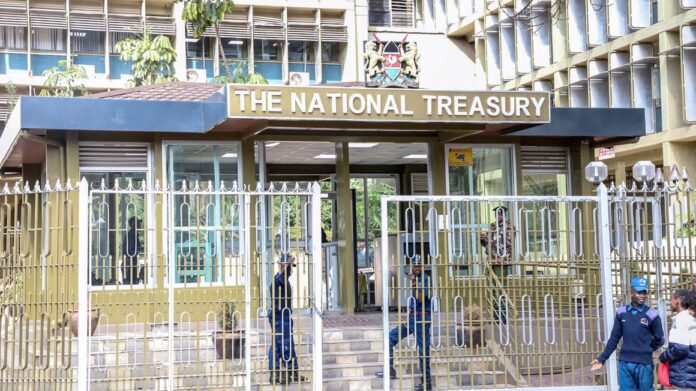Investors and households in Kenya are caught up in a divergence of policies between the National Treasury and the central bank as the new administration grapple with a wave of inflationary pressures, high debt servicing costs and a slowdown in economic growth.
But economists warn that the tightening of both fiscal and monetary policies concurrently by the National Treasury and CBK is a recipe for economic downturn, casting doubt on the government’s efforts to tame inflation, support local businesses and attract foreign direct investment.
Yvonne Mhango, Group Chief Economist and Director of Research at Equity Group Holdings, said that a tighter policy environment both on the fiscal and the monetary policy side implies downside risk to GDP growth.
“The Finance Bill proposes measures that reflect fiscal restraint, which will slow growth going forward. For businesses, it implies a slowdown in retained earnings available for re-investment, which undermines growth prospects,” she said.
The government, apparently dancing to the tune of the Bretton Woods institutions in economic management in efforts to seek debt relief and cheaper credit, is bracing to implement the controversial Finance Act 2023, which spells punitive taxation measures, including doubling of value added tax on fuel to 16 percent and a mandatory housing levy on salaried workers.
The proposed fiscal measures are aimed at boosting revenue collections and reducing budget deficit estimated at Ksh718 billion ($5.12 billion) in the 2023/24 financial year but lay the foundation for increased inflationary pressures triggered by high cost of production and transport.
This week, the Central Bank in a surprise move raised its benchmark rate by 100 basis points to 10.5 percent, arguing the policy shift is to anchor inflation expectations as a result of the tightened fiscal policies.
This was the first key policy action under the newly appointed governor Kamau Thugge, who assumed the office on June 19, replacing Patrick Njoroge after eight years in the role.
This ushers in a high interest rate regime, where households and businesses will find it difficult to access bank loans for expansion and new investments.
According to Reginald Kadzutu, chief executive at the asset management firm Amana Capital Ltd, inflation caused by rising prices of goods and services cannot be controlled by increasing interest rates.
“Taxes affect both owners of capital and labour, but the rate hike will benefit only the owners, creating an even more unequal society,” he said.
The high interest rate will also increase the cost of government borrowing in the domestic market through treasury bills and bonds, making the cost of servicing government debt expensive.
“In terms of the implications of the policy trajectory we are seeing in the economy, it implies that the tightening on the fiscal side, added to the tightening on the monetary policy, we will see some softening of growth going forward,” Ms Mhango said.
According to her, a higher tax burden means that households have less disposable income and hence a slowdown in spending and consumption in the economy, which has implications on GDP growth.
Kenya is under immense pressure from the International Monetary Fund (IMF) to raise taxes and remove subsidies, particularly on fuel, to deal with persistent budget deficit and to maintain a tight monetary policy regime.
Yet, the IMF Working Paper dated 1998 on ‘Coordination of Monetary and Fiscal Policies’ said a balanced monetary and fiscal policy mix is conducive to maintain an economy on its equilibrium path by controlling inflation and promoting financial conditions for sustainable growth.
In effect, setting a restrictive monetary policy to offset a lax fiscal policy may crowd out private investment and significantly increase the borrowing costs for the government.
“The establishment and development of domestic capital markets require an even greater degree of monetary and fiscal policy coordination,” said the IMF.
In 2016, a dispute erupted between the National Treasury and the Central Bank over who was to blame for the rising cost of living after inflation spilled out of the government upper limit of 7.5 per cent. While the Treasury argued that CBK should be vigilant over all aspects of inflation that caused the cost of living to rise by 8.01 per cent in December 2015, the regulator said it could only police risks arising from excess money supply in the market.
The overall inflation for May 2023 rose to eight percent from 7.9 percent in April as a result of high food and energy prices.
Ken Gichinga, chief economist at Mentoria Consulting, says lack of coordination between monetary and fiscal policies and the resultant double tightening on both ends will see a slowdown in business performance.
The EastAfrican




